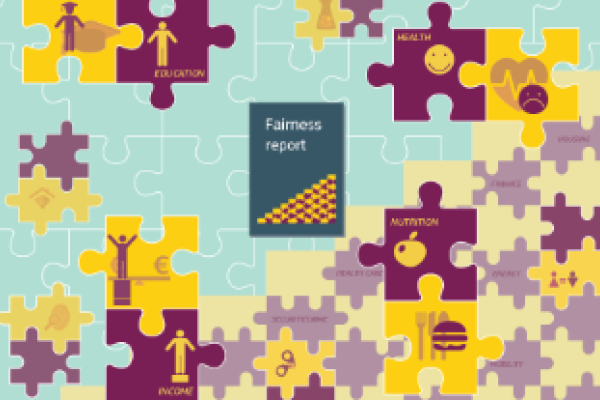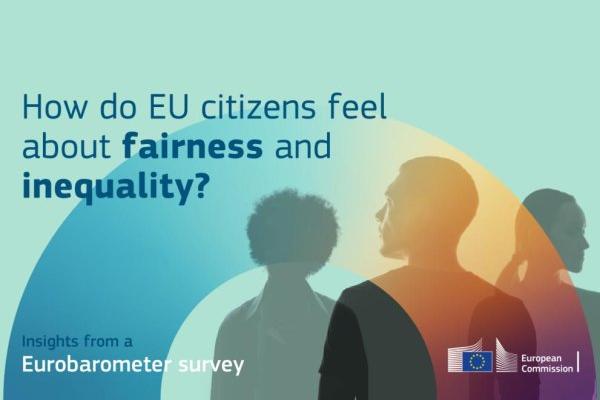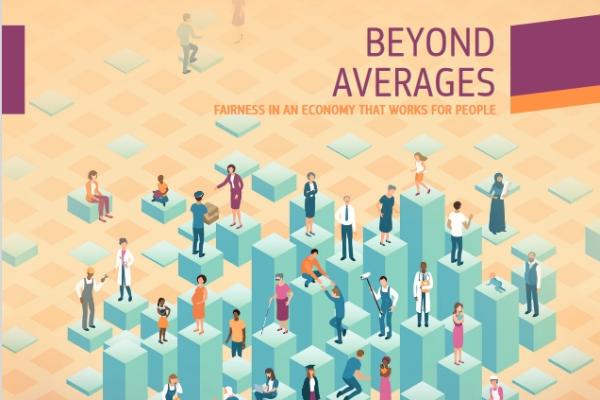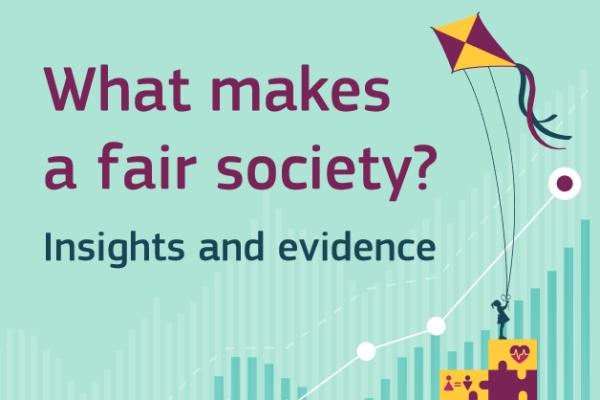The importance of fairness in the political agenda is reflected by the adoption of the European Pillar of Social Rights in 2017 and also by the Commission 2019-2024 priority: An economy that works for people.
To provide a wider evidence base that can enhance EU policy aiming to achieve this goal, the European Commission's Joint Research Centre (JRC) has embarked on a multi-year cross-national research project to study different aspects of fairness.
The research topics addressed include: the distribution of income across and within EU Member States as well as the fairness related impact of tax and social benefits systems; the dynamics of social mobility across and within generations; the drivers of inequalities and fairness perceptions; and the determinants of civic and social behaviors.
Check below for more resources: latest workshops, latest policy briefs, other publications, and data on fairness.
Latest Workshops of the Community of Practice on Fairness

The Community aims to foster an informed dialogue and knowledge sharing on the multidimensional aspects of fairness thereby bridging the gap between academics and policy makers. The Fairness CoP regularly organises events on fairness relevant topics.
The seminar presents how multidimensional coaching and addressing inner disempowerment can enhance poverty reduction interventions, focusing on systematic collaboration between mentors and individuals in poverty.
The seminar will present some evidence based on the Special Eurobarometer survey data concerning the spread of relative income (mis)perceptions in the EU.
Latest policy briefs on Fairness
The JRC regularly publishes policy briefs on various topics related to fairness.
- According to estimations based on a recent Eurobarometer survey, more than 40% of EU citizens underestimate their income position, while circa 15% overestimate it.
- Respondents tend to place themselves closer to the middle of their country’s income distribution than they actually are. In other words, lower income households tend to overestimate their income position, while higher income households tend to underestimate it. This tendency holds across all countries.
- Misperceptions about one’s position in the country’s income distribution tend to be larger in lower income countries, in countries that have experienced faster income growth in recent years and in countries with higher inequality.
- Misperceptions are correlated with several socio-demographic characteristics. For example, younger people, women and less educated people misperceive their income position more on average.
- Respondents who overestimate their income position report higher life fairness perceptions, are less concerned about income inequality and are less likely to favour a spending increase on income support policies. Correspondingly, those who underestimate their income position are more concerned about inequality and are more supportive of income redistribution.
- According to a recent Eurobarometer survey, childhood circumstances have vastly improved between birth cohorts in the past 80 years or so, but there are still large differences between EU countries.
- Childhood circumstances are key to explaining tertiary educational attainment, with parental education having the greatest influence.
- Pre-school attendance is a significant driver of tertiary attainment, even after accounting for the home environment during childhood.
- Northern European countries have the lowest levels of inequality of opportunity in tertiary education, while southern European countries have the highest levels of inequality in tertiary education.
- Inequality of opportunity has decreased over time with the largest declines observed where it was initially highest, i.e. in southern Europe.
- According to a recent Eurobarometer, 81% of EU citizens perceive income inequalities as too great.
- Support for greater redistribution is high (77% of EU citizens) and correlates with perceived inequalities and preferences for more spending in social policies.
- Most EU citizens favour additional spending on social policies, especially in southern EU countries.
- Increased spending on healthcare and long-term care is the top priority in almost all countries, followed by education, pensions, housing and then income support and family and unemployment benefits.
- Most believe that additional social spending should be financed by increasing households’ tax burden (51%), with alternatives being reducing other public expenditure (15%), increasing public deficits (12%) or not increasing social spending (16%).
- According to a recent Eurobarometer survey, 81% of EU citizens believe that income inequality is too high. While remaining high, the level of concern about income inequality is slightly lower than in 2017 (85%).
- Despite the COVID-19 crisis, income inequality concerns decreased for most socio-economic groups. This drop was largest for older individuals and those living in rural areas.
- In contrast, the perception of life fairness has declined in the past 5 years: the share of individuals agreeing that things that happen in their life are fair decreased from 51% in 2017 to 38% in 2022.
- Fairness perceptions diminished especially among young people and students, but less so among lower-educated individuals and those with financial difficulties.
- The direct economic consequences of the COVID-19 pandemic do not seem to be the major cause of the decrease in fairness perceptions. Potential drivers include uncertainties about the future, perceived inequality of opportunity, and discontent with measures taken to contain the COVID-19 pandemic.
Data

The survey shows that, in 2022, fewer Europeans think that life is fair compared to 2017. While people are not more concerned about income inequality than 5 years ago, there is wide support for additional spending on social policies. The fieldwork was carried out in May and June 2022. 26,395 respondents across the EU-27 participated.

The poll shows most Europeans think life is generally fair, but have concerns over justice, political decisions and income inequality. This survey was conducted through face-to-face interviews between 2 and 11 December 2017. A total of 28,031 people were interviewed in 28 EU countries.



